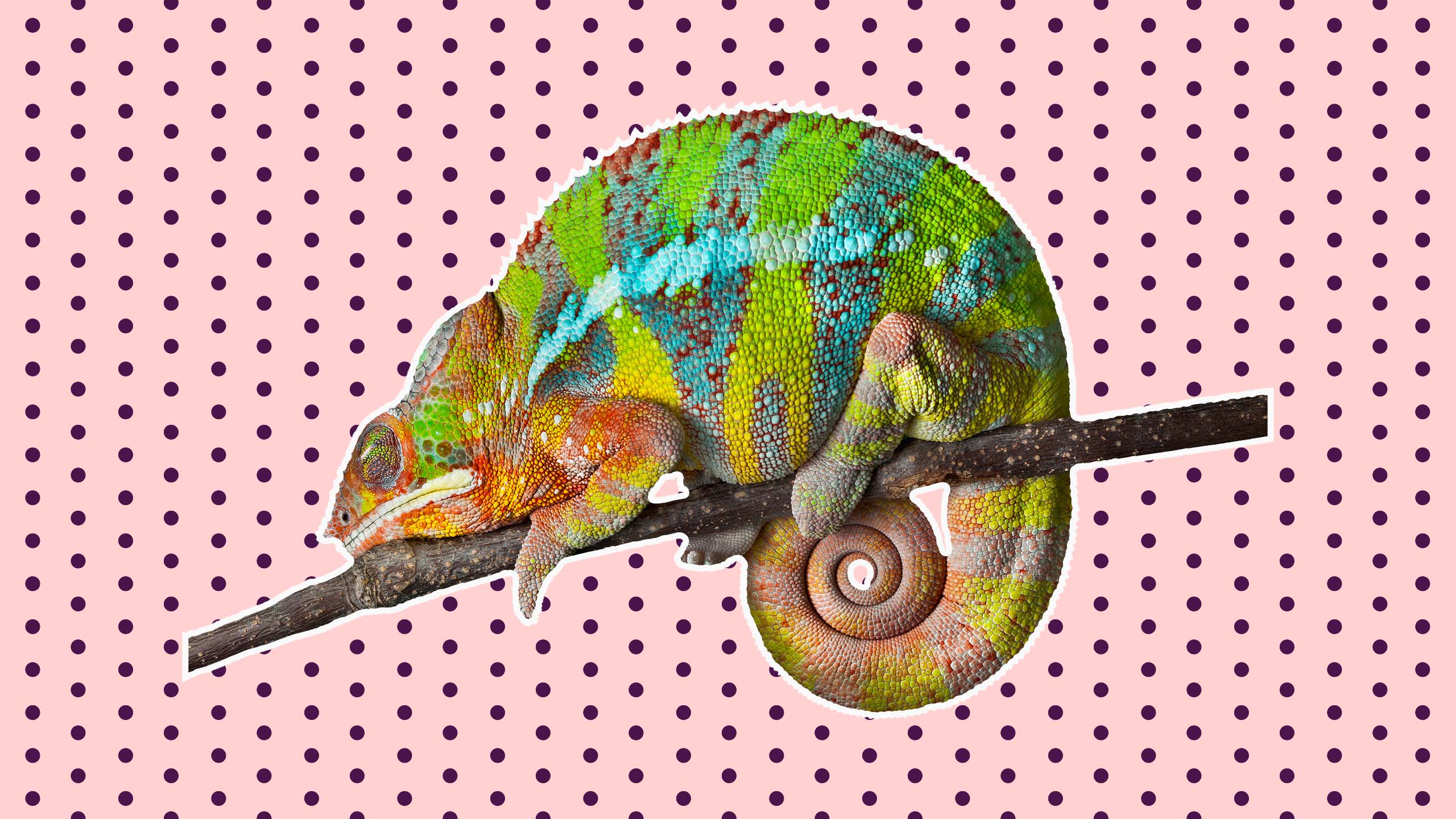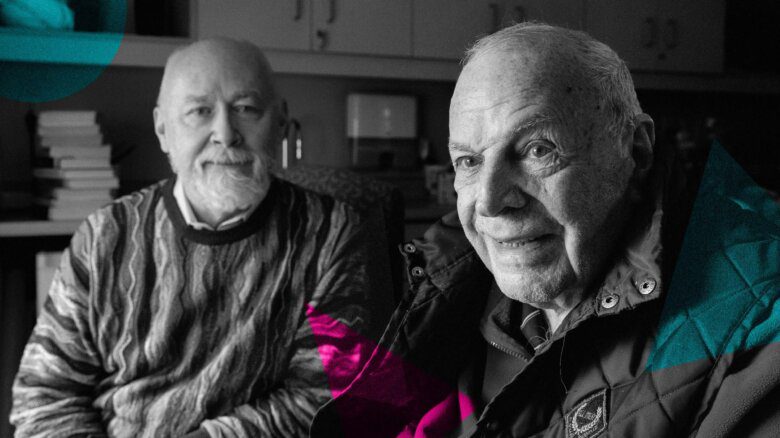“Ask Kai: Advice for the Apocalypse” is a column by Kai Cheng Thom to help you survive and thrive in a challenging world. Have a question? Email askkai@xtramagazine.com.
Dear Kai,
I’m hoping you can help me figure out an issue related to cultural appropriation. Long story short, I’m a diasporic person of colour and I have a really close white, queer friend who is super into “wellness” culture. They love yoga, meditation, “inner child” healing, juice cleanses, intermittent fasting, those crystal eggs you put in your vagina … basically if Gwyneth Paltrow has featured it on Goop, my friend is into it. It’s honestly pretty cringey, but I’ve been trying not to say anything because I just don’t want to get into it with them. And if it makes them happy then whatever, right?
Recently, though, my friend has started to brand themselves on social media as a teacher of yoga, spirituality and “shamanic” healing. I’m not even sure what all the cultural lineages they’re stealing from are, but it feels like there are South Asian, East Asian and Indigenous practices being co-opted and thrown together in this horribly offensive way. Should I confront my friend and tell them to stop what they’re doing? Is it ever okay for a white person to teach another culture’s spiritual practices?
Sketched Out & Stressed
Dear SOS,
If there is anything I have learned in this life, it is that we can control neither the behaviours nor the moral outlook of the people in our lives no matter how much we might wish to, or how beneficial it might be for them (and the world) in the long run. People will do what they are wont to do, and—at the risk of sounding sassier than this column usually gets—white folks are going to get up to some kind of nonsense (which this colonial society encourages them to do), and there isn’t all that much we can do about it. The real question is: How are we going to care for ourselves and hold healthy boundaries when our friends do things that we disagree with?
There are two main queries in your letter, SOS. One is about the “cultural appropriation versus cultural appreciation” debate that has haunted popular discourse for the past decade. When, if ever, is it okay to take on the practices and traditions of a culture that is not our own? The second is about the ethics of friendship. Do we have a responsibility—or a right—to confront our friends about behaviours we believe are wrong? And if so, what does that confrontation look like?
Let’s take these two lines of thinking one at a time. First of all, when it comes to cultural appropriation, let me acknowledge that there is a wide spectrum of opinion on this that runs the gamut from “anyone has the right to try any cultural practice they want” all the way to “it’s racist for college cafeterias in America to serve bad sushi.” Perspectives on cultural appropriation are themselves heavily influenced by cultural context, and it takes a certain amount of patience and mental flexibility to navigate the social debate and come up with a more nuanced position (which I recommend!).
For readers who are less familiar with the cultural appropriation debate, the basic premise is this: for centuries, the legacies of colonization and imperialism have resulted in many peoples worldwide having their spiritual, artistic, culinary and cultural practices taken by outsiders and then repackaged in ways that are inauthentic or offensive to the original. To make matters worse, many colonized Black folks, Indigenous peoples and people of colour have had their cultural practices and beliefs actively suppressed on the threat of violence or even death by white colonizers, only to later have those same practices and beliefs resold by white people at a premium as “fashionable” trends in art and music, “New Age” spirituality, “wellness” wisdom and other money-making schemes.
However, not everyone agrees on what constitutes cultural appropriation, or even if cultural appropriation is a problem at all—including Black people, Indigenous people and people of colour (given that there are several billion of us on the planet, it stands to reason that there would be some diversity of opinion here). One popular argument in this vein is that cultural exchange, whether peaceful or violent, has been a part of human history since, well, the beginning of human history, and has resulted in both great innovation and deeper cross-cultural understanding. In fact, some might further argue that trying to keep cultural communities rigidly separate from one another is in itself a form of racism because it echoes segregationist thinking.
As stated above, I personally believe that a nuanced response is generally the most helpful when trying to understand cultural appropriation. A metaphor I like to use is one of gift-giving: it’s not always wrong to receive a gift from someone else—in fact, it’s often quite wonderful. However, it is wrong to accept a gift in certain circumstances: it would be wrong for a boss to require their employee to give them gifts; it’s wrong to assume that you can just take whatever you want from someone’s house and call it a “gift”; and it’s wrong to accept certain kinds of gifts from an inappropriate person (for example, when I was in the social work field, one of my colleagues was once offered the gift of diamond jewelry by a client, and it would have been wrong to accept). How do we know when it is right or wrong to accept a gift? Context! Consent! Examining power dynamics! The same is true for cultural appropriation.
So let’s look at the context of your friend, SOS, and their current role as a spiritual teacher. One important guideline for me when it comes to cultural appropriation is to ask whether the practice being appropriated is one that was intended to be shared with outsiders in its original context. Another important consideration is whether the original creators of a practice are being degraded or exploited by the appropriators.
Most foods, for example, are meant to be shared openly in any given cultural context, and it’s often a matter of pride for specific communities to show off their foods to the world. The sharing and appropriation of culinary practices worldwide is what’s given rise to the rich and varied food cultures we have today. Religious or spiritual practices, however, are a different story: by nature, they tend to be sensitive, private in the sense of being not open to outsiders and frequently require a process of explicit initiation. Playing or experimenting with another culture’s spiritual practices without permission is much more likely to be offensive.
When it comes to your friend, SOS, it may be important to consider what they are actually practising and where their teaching comes from. Some Buddhist meditation communities, for example, are open to practitioners and initiates from all walks of life, and some Buddhist movements (such as Engaged or Applied Buddhism) are even explicitly meant to be adapted to the social and political context the practitioner finds themselves in. Certain yoga lineages were created with the explicit intention of being shared with the world. In short, there are some cross-cultural spiritual practices that it may indeed be appropriate for white people to engage in and even to teach, provided they are doing so in accordance and with the approval of the spiritual community they learned them from. If your friend is doing this, SOS, then that may be something that you should respect.
Many other religious or spiritual practices, however, were not developed with outsiders in mind—and some are definitely meant to be kept within their original communities. Certain Indigenous ceremonies and medicines, for example, are not for non-Indigenous peoples, and unfortunately, there is a long history of non-Indigenous individuals taking, teaching and even selling Indigenous medicines and practices (or, more often, gross and offensive facsimiles of them) without permission. If your friend is doing something of this nature, then that’s definitely not okay.
So it may be important for you to learn more about what your friend is up to, SOS, at least insofar as developing an opinion is concerned. You might need to consider leaning past the “cringey” factor and get curious. Where did your friend’s interest in non-white spiritual practices begin, and where did they go to follow that interest? What is their internal model of ethics when it comes to cultural sharing or appropriation? You might find out that you’re more in alignment than you think. On the other hand, you might find out that your friend is acting against your ethical values, which brings us to your second question: When and how should we confront people we’re close to who are doing something that is wrong?
Here, it’s important to establish some clear boundaries. As adults in the adult social world, we have a right to our own opinions and beliefs. We owe our friends a certain measure of honesty and compassion, and we don’t have the right or the responsibility to control them or make them into “good’ people according to our own definition of goodness. Trying to control others, even for good reasons, is almost certainly going to lead to conflict and the eventual breakdown of the relationship. So what does that mean for you, SOS? I think it means that you have three choices:
1) You can decide that the level of unethical behaviour on your friend’s part (if it comes out that they are culturally appropriating in a harmful way) is low enough for you to ignore and continue the relationship without talking about it.
2) You can decide that the level of unethical behaviour is too high to ignore and tell them your perspective. If they hear you and agree to stop, great! If they don’t, then there will come a point where you need to accept their boundaries and either go back to Choice One or move on to Choice Three.
3) You can decide that the level of unethical behaviour is too high to ignore and you need to end the relationship.
None of this will likely be pleasant, but you might arrive at some illuminating or even transformative conversations with your friend—there is personal growth to be had here for both of you (I know, I know, “Yay, personal growth through conflict,” said no one ever). The key here is to surrender to the reality that we cannot control the outcome of such situations in regards to other people’s behaviour. You don’t know and can’t decide what your friend will do. You can, however, take care of yourself by practising healthy boundaries and living up to ethics as you understand them.
What’s important to you in this situation, SOS? Standing up for racial and cultural justice, I would imagine. There may be other important values that you want to practice as well—compassionate conversation, perhaps, or courageous confrontation. When you look back on this situation five years from now, what do you want to remember about how you behaved? What personal wounds are getting triggered for you personally in this situation, and what do you need to care for them?
Take heart, SOS. Standing up to our friends with both courage and compassion is never easy. It is, however, one of the most important adult social skills we can learn. Sometimes, a well-timed courageous conversation can shift a person’s path. Other times, it can’t. In either case, we get to move on, knowing that we have followed the direction of our own ethical compass. Your friend will choose their own path, SOS. You get to choose yours, too.
Kai Cheng Thom is no longer a registered or practicing mental health professional. The opinions expressed in this column are not intended or implied to be a substitute for professional medical advice, diagnosis or treatment. All content in this column, including, but not limited to, all text, graphics, videos and images, is for general information purposes only. This column, its author, Xtra (including its parent and affiliated companies, as well as their directors, officers, employees, successors and assigns) and any guest authors are not responsible for the accuracy of the information contained in this column or the outcome of following any information provided directly or indirectly from it.


 Why you can trust Xtra
Why you can trust Xtra


